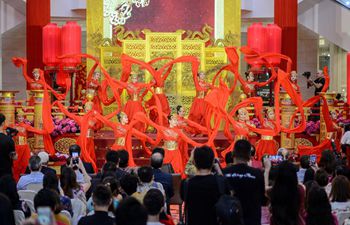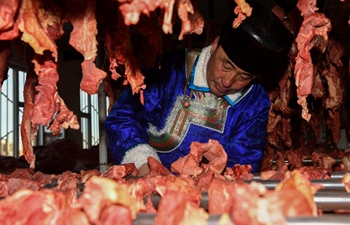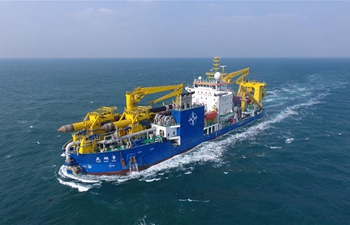BEIJING, Jan. 10 (Xinhua) -- Hand tremors, rigid muscles and slowed movements, Parkinson's disease can take the life out of a patient's limbs, but Li Luming fights to keep them alive.
For 17 years, the Chinese scientist has been working on technologies to develop effective and more affordable brain pacemakers, a gear implanted in the brain to relieve the symptoms that affect millions of Parkinson patients.
Li received China's national science and technological award Tuesday for his work in the field.
"I am delighted because it is a recognition of the years of work done by our team," said Li. "But developing brain pacemaker technology is a marathon, and we still have a long way to go and great pressure on our shoulders."
Statistics show that China has around two million patients suffering from Parkinson's disease. In the past, patients could only buy imported brain pacemakers due to the lack of independent technology.
The imported gear and each implant cost around 200,000 yuan (29,000 U.S. dollars) to 300,000 yuan. In addition, the battery recharge required every five years costs another 200,000 yuan.
Li and his team started research and development of brain pacemakers in 2000, and in 2016, the team has registered their self-developed products, making China the second country with the capability to make brain pacemakers.
Their work has also brought down the implant cost by around 100,000 yuan per operation. In 2017, the market share of their products in China has reached 60 percent.
"The products are even equipped with space technology," said Li, who teaches at the School of Aerospace Engineering in Tsinghua University. "We have received great support from the university and relevant government departments during product development."
Since 2009, more than 6,600 patients with Parkinson's disease have received brain pacemaker implants thanks to Li. In 2018 alone, more than 2,000 received the operation.
Zhao Lin was the first patient to be implanted with the pacemaker developed by Li's team in November 2009. He calls Li each year to express gratitude and tell him about his life.
Upon receiving the national award, Li said the honor is equally as inspiring as the good news he receives from patients like Zhao.
Li tightened his schedule even further after the award. "We are conducting new research to improve the existing pacemakers to better serve the patients," he said.
His team is exploring the potential effects of pacemakers on other neurogenic diseases such as Alzheimer's and depression, as well as developing more brain stimulators for clinical use.
"Reducing pain for patients and making the world a little bit better, these are what we as scientists want to do," Li said.

















